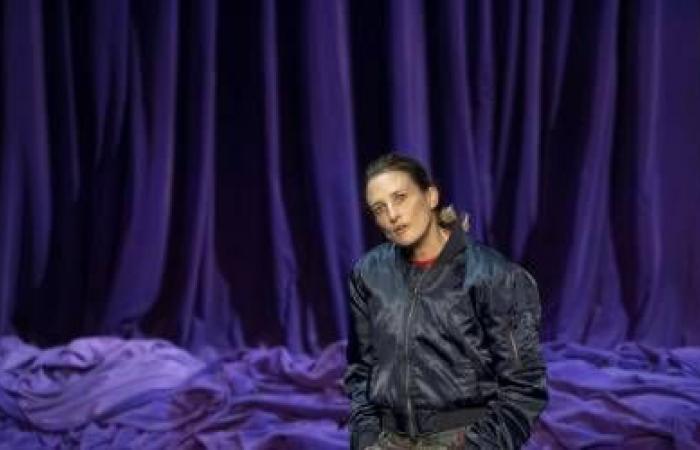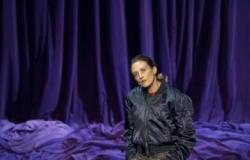
With The meetingCamille Cottin returns to the theatrical art through which she made her mark at the end of the 1990s. The one who has recently made a name for herself in Hollywood, appearing in films like House of Gucci or Stillwaterreturns to drag his gaiters on the French stages. After the Jeu de Paume in Aix three months ago, here she is at the Arles theater, where she plays Wednesday December 18 and Thursday December 19 The meeting.
« In September 2022, I was contacted by Camille Cottin, who told me of her desire to return to the stage and offered to direct her in a version to be adapted from Katharina Volckmer’s novel, “The jewish cock “ », recalls Jonathan Capdevielle. “ In English, the original title of this German author is “The apointment or the story of a cock“. We asked ourselves the question of the title a lot. “, places Camille Cottin, halfway between laughter and embarrassment, about this ” genre comedy » and solo, not recommended for under 16s. “ I fell in love with his pen and his look. She likes transgression and breaking down taboos. She goes very far, but does so with great humor, wit and incredible energy. »
“It sets in motion the foundations of identity”
« What could a young German girl about to become a circumcised Jew have in mind? ? », depicts the Arles theater to evoke this Appointment between the main protagonist of the case and her gynecologist. “ She speaks without shame and unvarnished about this body that suffocates her, her psychologist sessions and her Hitler obsessions, her family heritage and her guilt of being German, her fascination with a creator of Japanese sex toys and her love story. with K, met in the public toilets. »
In this monologue, “ which is similar to a confession », says the director, so many torments which will lead her to want “ have a circumcised penis transplanted “. A character through whom Katharina Volckmer, whose first novel this is, “ explains her discomfort at being born with the wrong body and criticizes this idea of fitting into the norm, within a framework “. As Jonathan Capdevielle points out, “ she confides over the pages without taboos and sifts through the complex question of self-construction. An intimate reflection that sets in motion the foundations of identity, calling for a critical look at one’s native country, with its Nazi past. ».





